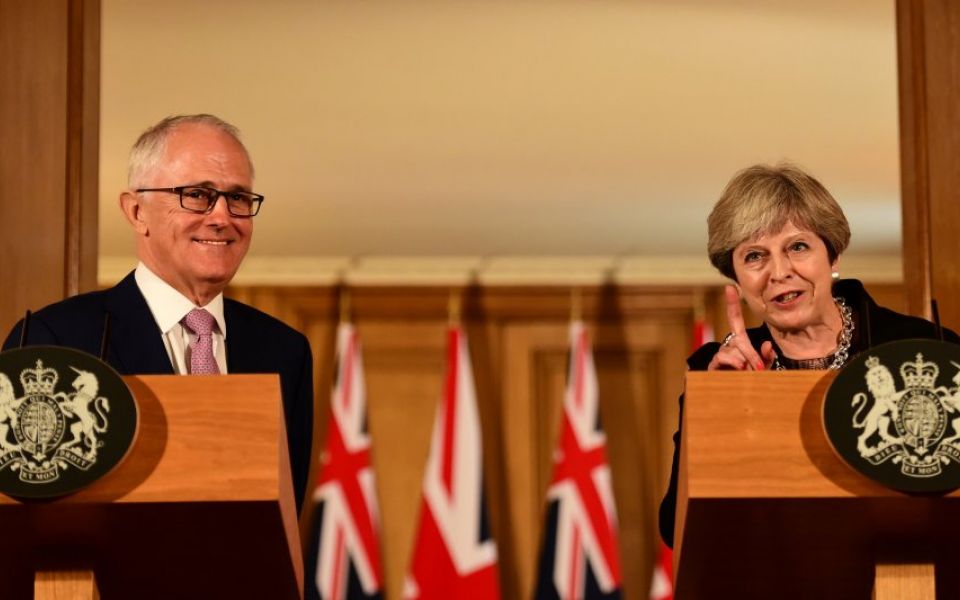The revolving door of Australian Prime Ministers is a lesson for May

You know the story: Australia has yet another Prime Minister.
In fact, it has been 11 years since one has completed a full three-year term, and as of last week, five people have held the office in as many years.
It is enough to make British politics look strong and stable.
Read more: Lidington tells Europe: Accept our Brexit deal or face no deal
Asking what impact the new Liberal leader, Scott Morrison, will have is a fairly useless exercise. The next federal election is due to be held in early 2019, and with the opposition Labor Party so far ahead in the polls, the prime ministership will all but certainly change hands again.
A more useful question is what lesson can the UK learn from the latest leadership change? Indeed, the parliamentary systems of Australia and Britain are so alike that it would be a waste not to do so, particularly since everyone seems hell-bent on searching for grand unifying theories to make sense of this era of populism.
To this London-based Australian (a rare breed, I know), there is a clear warning: beware compromise.
The newly deposed former Prime Minister, Malcolm Turnbull, is an economically conservative but socially and environmentally liberal politician. He arguably represents the views of most Australians, but was only able to seize control of the prime ministership in 2015 by promising the right wing of his party that he would effectively not be too much himself.
This approach hit his approval ratings, hard.
It saw him call a costly, non-politically binding, voluntary postal survey on marriage equality – a cause he ardently supports – rather than simply putting the matter to a vote in parliament. He was also forced to water down his carbon emission reduction agenda, only to face criticism from many that he was selling out his true beliefs.
Rightly or wrongly, compromises like these are seen as weakness, not statesmanship, particularly when news is consumed 280 characters at a time. The focus is placed on what could have been, rather than what was achieved under adverse circumstances.
In the UK, Theresa May’s government faces a similar challenge securing support for her Brexit negotiating position.
Far from receiving widespread praise for pulling off the seemingly impossible – taking steps towards delivering Brexit – the Chequers agreement has been derided left, right and centre for either failing to deliver a proper exit from the EU or not standing up to the hard Brexiteers and failing to push for closer ties to the bloc.
Of course, the more fundamental problem is that we still do not know deep down whether May believes that any form of Brexit can be a good thing. Certainly, her recent comments that a no-deal Brexit “wouldn’t be the end of the world” lack passion.
As such, compromise is perceived to be her default position, and detractors see her as lacking conviction rather than as an ambassador for both sides.
Compromise has also plagued May’s premiership beyond Brexit. Though she has repeatedly espoused the virtues of free markets and capitalism, the Prime Minister has pursued interventionist policies like capping the amount that energy companies can charge their customers, and refused to make the big reforms necessary to tackle the housing crisis.
Unfairly or not, this conspires to paint a portrait of May’s time in office as directionless.
The lasting irony of the latest debacle in Australia is that it will culminate in another weak compromise: the successor to Turnbull whom the Liberals elected is neither right-wing enough to unify the party, nor sufficiently charismatic or popular to win them another term in office.
One need not spell out the obvious parallels.
To end on the afore-promised sweeping political theory: compromise sits at the heart of democracy, but it is becoming unfashionable. It maybe also explains why we are talking about more uncompromising figures like Boris Johnson, Jeremy Corbyn, or even Jacob Rees-Mogg occupying Number 10 before long.
Read more: Sterling falls to one-year low as May plays down no-deal Brexit threat